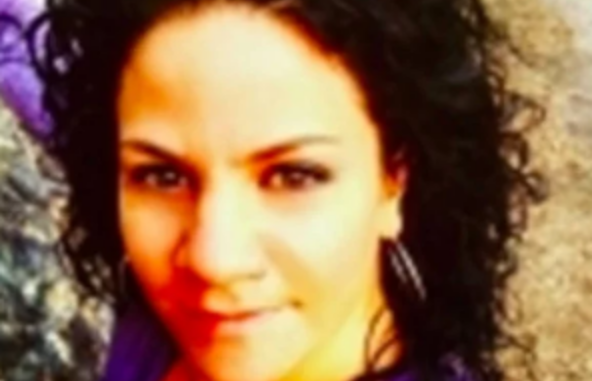
George Washington University told BuzzFeed News it was investigating after a white professor admitted she’d been posing as Black for the entirety of her career.
In a lengthy Medium post published on Thursday, Jessica A. Krug writes, “To an escalating degree over my adult life, I have eschewed my lived experience as a white Jewish child in suburban Kansas City under various assumed identities within a Blackness that I had no right to claim.
“I have built my life on a violent anti-Black lie, and I have lied in every breath I have taken,” Krug adds.
The revelation is reminiscent of Rachel Dolezal, the NAACP leader who made headlines in 2015 after it was revealed that she was a white woman disguising herself as Black.
According to GWU’s website, Krug is an associate professor in the history department who specializes in Africa, Latin America, and colonialism and imperialism. She is described as “a historian of politics, ideas, and cultural practices in Africa and the African Diaspora, with a particular interest in West Central Africa and maroon societies in the early modern period and Black transnational cultural studies.”
On Friday, administrators announced that while the university reviews the situation, “Dr. Krug will not be teaching her classes this semester.”
“We want to acknowledge the pain this situation has caused for many in our community and recognize that many students, faculty, staff and alumni are hurting,” M. Brian Blake, provost and executive vice president for Academic Affairs, and Paul Wahlbeck, dean for the Columbian College of Arts and Sciences, said in a joint statement. “Please know that we are taking this situation seriously and are here to support our community.”
In her Medium post, Krug says her “unaddressed mental health demons” and “severe trauma that marked my early childhood and teen years” are what led to her pretending to be Black “as a youth,” a lie that continued and escalated through adulthood.
“But mental health issues can never, will never, neither explain nor justify, neither condone nor excuse, that, in spite of knowing and regularly critiquing any and every non-Black person who appropriates from Black people, my false identity was crafted entirely from the fabric of Black lives,” she writes.
Krug said she had shifted through several iterations of fake Black identities: “first North African Blackness, then US rooted Blackness, then Caribbean rooted Bronx Blackness.” She considered coming clean a number of times over the years, she said, “but my cowardice was always more powerful than my ethics.”
“I am not a culture vulture,” she writes. “I am a culture leech.”
Krug acknowledged that through her lie, she had formed relationships with many people who “trusted me, who fought for me, who vouched for me, who loved me,” and who may now be “feeling shock and betrayal and rage and bone marrow deep hurt and confusion, violation in this world and beyond.”
“I was audaciously deceptive,” she writes. “I have a very clear, loud conscience, but I have acted as if I had none. I gaslit you.”
Krug was not living a “double life,” she said, with “no parallel form of my adulthood connected to white people or a white community or an alternative white identity.”
She said she does not know how to right these wrongs, but is “attempting to lay out a timeline of my deceit to better understand all whom I have violated.”
“But I can’t fix this,” she writes. “I have burned every bridge and have no expectation that any of my relationships are flame resistant.”
Krug also said she “believe[s] in cancel culture as a necessary and righteous tool for those with less structural power to wield against those with more power,” and said she should be canceled — though she admitted she does not really know what that means in practice.
“You should absolutely cancel me, and I absolutely cancel myself,” she writes. “What does that mean? I don’t know.”
Throughout her career, Krug wrote and contributed to several books and articles about the African diaspora and Black identity, and was working on a new book about the history of political resistance in São Tomé, the Dominican Republic, and Jamaica.
Just over a week ago, on Aug. 27, she wrote an op-ed for Essence about violence against Black people in the US with a focus on Puerto Rico, repeatedly using the words “we” and “us” to implicitly identify herself as part of the community.
Krug’s op-ed has since been removed from the Essence website.
“The beneficiaries of enslavers have no more right to claim Blackness by proximity or linguistic affinity in San Juan than they do in St. Louis,” reads one line of the op-ed, which can be viewed in an archived version.
She also contributed articles to the blog RaceBaitr, which have also since been wiped from the website. An archived version of her author bio identifies her as “an unrepentant and unreformed child of the hood” whose “heart [is] consumed in the struggle for her community in El Barrio and worldwide.”
Racebaitr editor-in-chief Hari Ziyad tweeted Thursday that Krug was “someone I called a friend up until this morning when she gave me a call admitting to everything written here.”
Ziyad suggested the reason for Krug’s admission was because her truth was about to be exposed.
“She didn’t do it out of benevolence,” Ziyad said. “She did it because she had been found out.”
In a statement on Twitter, Racebaitr apologized for giving Krug a platform and “not taking seriously enough some of your warnings.”
“Keeping Black spaces safe is our highest priority and we failed this time, but we will do better,” Racebaitr tweeted.
*story by BuzzFeed News